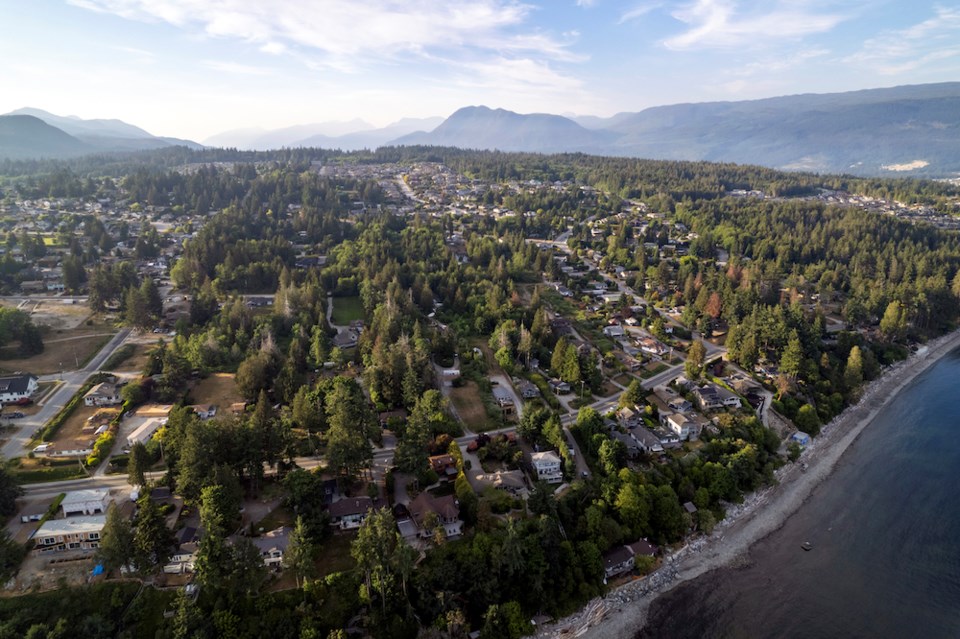There have been ongoing conversations in the community regarding public safety. The general sentiments are that community safety is threatened by drug users and visibly unhoused people. Public safety and information meetings were held in August and October in response to these safety concerns and rising crime rates with residents, District of Sechelt councillors, Mayor Silas White, MP Patrick Weiler and RCMP in attendance.
The Sunshine Coast RCMP is hoping for six additional members over two years and is asking the District of Sechelt to fund two of these positions. The two officers requested from the district include a mental health liaison to work with mental health and addiction clients, and according to the district, in 2025 the estimated cost of one officer is $250,000. Donna Bell, a DOS councillor and head of the district’s safety committee says she has met with a local group calling themselves Citizens on Patrol and the idea of some funding for the group is being considered.
These safety meetings and conversations have continued while the toxic drug emergency rages on claiming the lives of community members, disproportionately affecting Indigenous people and an unprecedented affordability and housing crisis surges. The voices of people who use drugs (PWUD) and those who are affected and targeted by the intentional erosion of services and supports are not being included in these conversations.
“Though we tend to think of drug policy as the arena of federal lawmakers, it is here on the streets where drug users die from policy at the hands of police, bylaw enforcement officers, city councils & the public,” said the VANDU & Pivot legal society Talking Back to the City Report.
Over a two week period from Aug. 29 to Sept. 9, 2024, police in so-called Canada killed six Indigenous people. In the following months of 2024, the killings continued. These deaths at the hands of police had heartbreaking similarities: drug users, mental health “wellness” checks, living unhoused or unsafely housed, including a 15-year-old boy named Hoss Lightning who called the police for help.
“Indigenous peoples have done the work & provided testimony to support the inquiries, research projects & special committees. Our voices have been loud in our calls for justice, action, accountability & change… –– to have our stories & proposed solutions documented in the hope that they would be implemented. Yet, genocide continues through law enforcement’s lethal use of force, which contributes to more harm, more death, & more grief. And this, too, has been documented. Canada has been complicit in the deaths of Indigenous peoples since first contact,” said Michaela McGuire - Jaad Gudgihljiwah of the Yellowhead Institute.
At at time when these deaths of Indigenous people, including in B.C., have sparked a call for a national policing inquiry, why are we talking about funding more police for our community? Why are we still believing that police are the ones we can rely on to uphold community safety when responding to mental health calls?
PWUD and those who live unhoused or unsafely housed in our community continue to be caught in “this cycle of displacement & destabilization which is a form of violence that stops people from pathways out of homelessness, & leads to premature death, particularly during the endless toxic drug supply emergency,” according to the Surrey Union of Drug Users Research & Policy Committee.
Fund community care. Carceral responses will continue the cycles that perpetuate violence, death, suffering, homelessness and displacement.
Jaylene Scheible is Sunshine Coast Harm Reduction Program Lead for the BC Hepatitis Network
